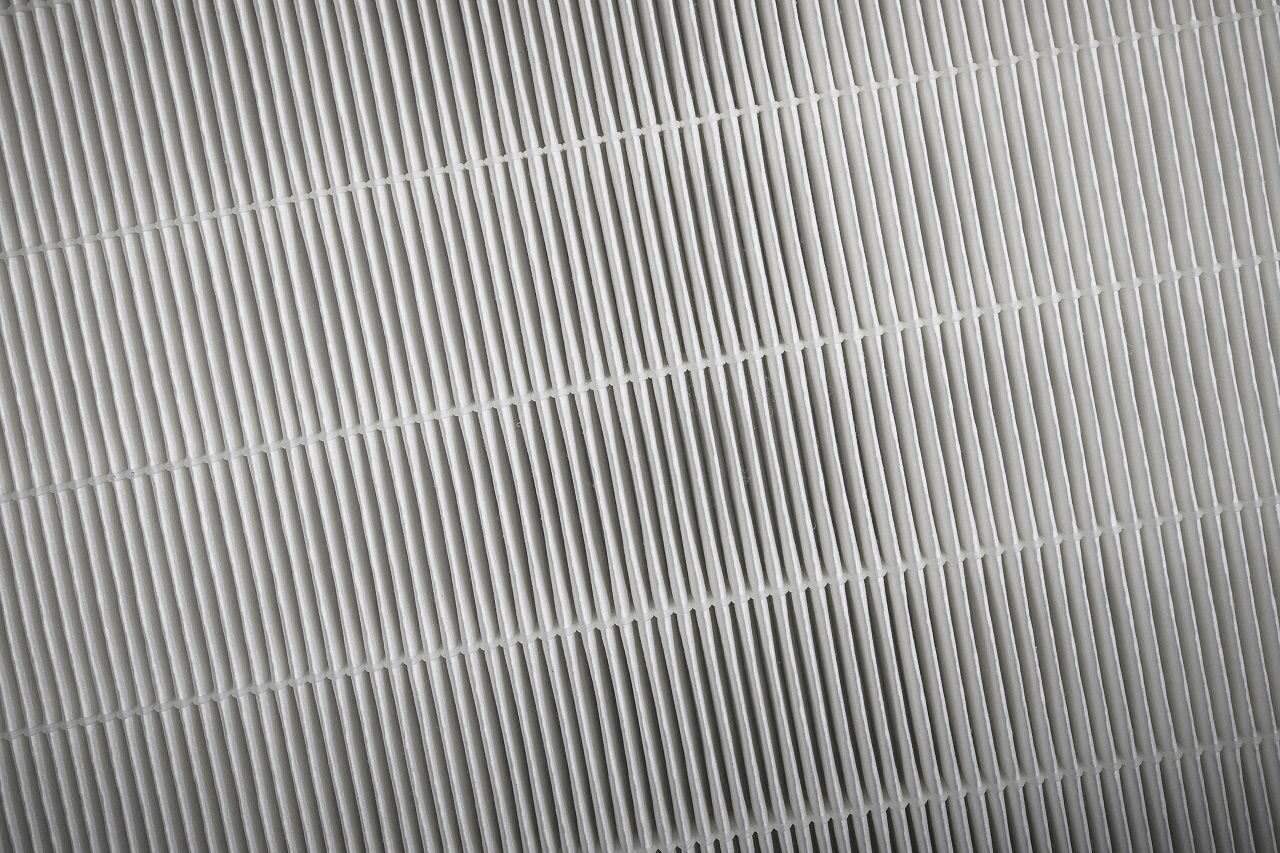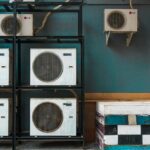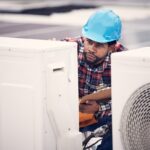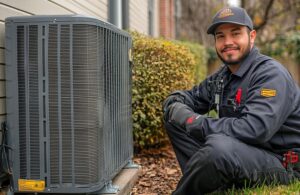
When we think about indoor air quality, few solutions are as effective as High-Efficiency Particulate Air (HEPA) filters. These filters are revered for their ability to trap a significant amount of very small particles that other filtration technologies would simply recirculate back into the air of your home or office. As specialists in HVAC services, we recognize the profound impact that installing a HEPA filter can have on the environment where you spend much of your time.
The technology behind HEPA filters is both fascinating and essential for maintaining a clean and healthy indoor atmosphere. These filters can remove at least 99.97% of dust, pollen, mold, bacteria, and any airborne particles with a size of 0.3 microns (µm). The role of these filters in an HVAC system is crucial, especially for those sensitive to air pollutants or living in areas with high environmental pollutants. By integrating a HEPA filter into your existing HVAC system, you not only improve the air quality but also enhance the overall efficiency of your heating, ventilation, and air conditioning unit.
Selecting the right HEPA filter and understanding its installation process requires insight and expertise, as it involves more than just fitting a filter in place. It’s about ensuring compatibility with your current system and understanding the airflow dynamics to avoid restricting air flow which can cause system inefficiencies. As we delve deeper into the factors to consider when choosing a HEPA filter and the best practices for its maintenance, our goal is to empower you with the knowledge to make informed decisions that lead to a healthier, more comfortable indoor environment.
Understanding HEPA Filter Technology and Its Importance in HVAC Systems
HEPA, or High Efficiency Particulate Air filters, are a pivotal component in enhancing indoor air quality in homes and workplaces. These filters are designed to trap a vast percentage of airborne particles that are 0.3 microns and larger, effectively capturing dust, pollen, mold spores, and certain bacteria. This level of filtration is crucial for ensuring a healthier living environment, particularly for those with allergies, asthma, or other respiratory conditions.
Integrating HEPA filters into HVAC systems poses significant benefits beyond improving air quality. They help maintain clean air circulation within your space, which can enhance the overall efficiency of your HVAC system by reducing the dust load on the system’s mechanics. This not only helps in prolonging the life of the system but also ensures it operates at peak efficiency, potentially reducing energy costs over time. Our team is well-versed in assessing and adapting these systems to maximize your home’s air quality without compromising system performance.
Factors to Consider When Choosing a HEPA Filter for Your Home
When deciding on a HEPA filter for your HVAC system, several crucial factors should be taken into account to ensure optimal performance and compatibility:
- Size and Compatibility: The size of the filter must match the specifications of your existing HVAC system. A mismatch can lead to reduced efficiency or even damage to the system. We can help determine the correct filter size that complements your system configuration.
- Efficiency Ratings: HEPA filters are rated based on their ability to trap particles. The most efficient filters capture 99.97% of particles that are 0.3 microns in size. It’s important to choose a filter that provides adequate filtration for your particular concerns, especially if air quality is a significant health consideration in your household.
- Air Flow Resistance: High-efficiency filters can restrict air flow more than less dense types, which can impact the efficiency of the HVAC system. Opting for a filter that balances air flow and particle capture efficiency is critical. We can guide you to find a filter that maintains air quality without straining your HVAC system.
- Cost and Lifespan: Higher quality HEPA filters might come with a higher initial cost, but the long-term benefits of reduced allergens and contaminants can outweigh these initial expenses. Additionally, consider the lifespan of the filter, as a longer-lasting filter will require less frequent replacements.
By understanding these key factors and how they apply to your home’s specific needs, our team is equipped to provide a tailored solution that enhances your HVAC system’s functionality and your home’s air quality.
Installation Tips: Integrating a HEPA Filter into Your Existing HVAC Setup
Integrating a HEPA filter into an existing HVAC system might seem daunting, but with the right guidance, it can be a straightforward process that significantly boosts your home’s air quality. First, ensure that your HVAC system can accommodate a HEPA filter, as these high-efficiency filters may require more robust support due to their density and airflow resistance. We typically begin by evaluating your current HVAC setup to determine the most compatible HEPA filter model that fits without restricting air flow or overworking the system.
Next, the installation involves adjustments to the ductwork in some cases, ensuring there are no air leaks which can undermine the efficiency of the filter. Securing all connections tightly is crucial as even minimal gaps can lead to significant efficiency losses. We handle all these technical aspects, verifying that each component of the HVAC system works harmoniously with the new filter, ensuring that you get the full benefit of your investment in air quality.
Maintenance and Care for HEPA Filters to Maximize Air Quality and Filter Longevity
Maintaining a HEPA filter is key to sustaining optimal air quality in your home. Regular maintenance not only extends the life of the filter but also ensures that its performance remains at peak levels. We advise checking your HEPA filter every three months; however, in homes with pets, or high dust levels, a monthly check might be necessary. Signs that your filter needs changing include visible dirt accumulation and a noticeable reduction in system efficiency or air flow.
During maintenance, we delicately remove the filter to avoid dispersing accumulated pollutants back into the air. If your filter is reusable, we clean it according to the manufacturer’s specifications, typically involving gentle vacuuming to remove dust, followed by a rinse with clean water. It’s important to allow the filter to dry completely before reinstalling to prevent mold growth. For disposable filters, we ensure a responsible disposal and replace it with a new one that matches your system’s specifications and your specific air quality needs.
Enhancing Your Home’s Air Quality with HEPA Filters
Upgrading to a HEPA filter in your home’s HVAC system is a significant step towards achieving cleaner indoor air, crucial for both your comfort and health. As your trusted HVAC specialists in Cincinnati, Ohio, we are committed to helping you navigate each step—from choosing the right HEPA filter to installing and maintaining it to ensure you reap maximum benefits. Enhanced indoor air quality is not just about comfort; it’s about creating a healthier living environment where you and your family can thrive.
Remember, the right filter does more than just purify air; it transforms your living space into a sanctuary that supports well-being. Should you need any assistance or have questions about HEPA filters or other ways to improve your home’s air quality, don’t hesitate to reach out. Contact us today at Turner On Services, and let our dedicated team make breathing easier and healthier for you and your family.







No comment yet, add your voice below!